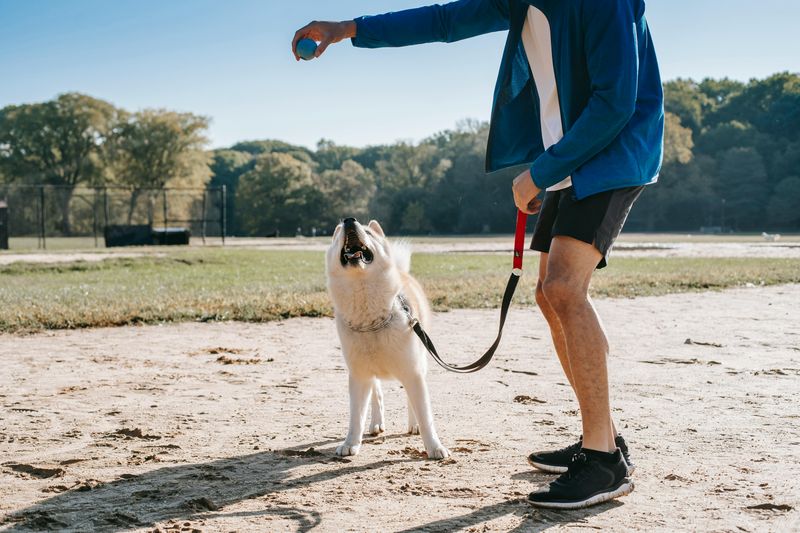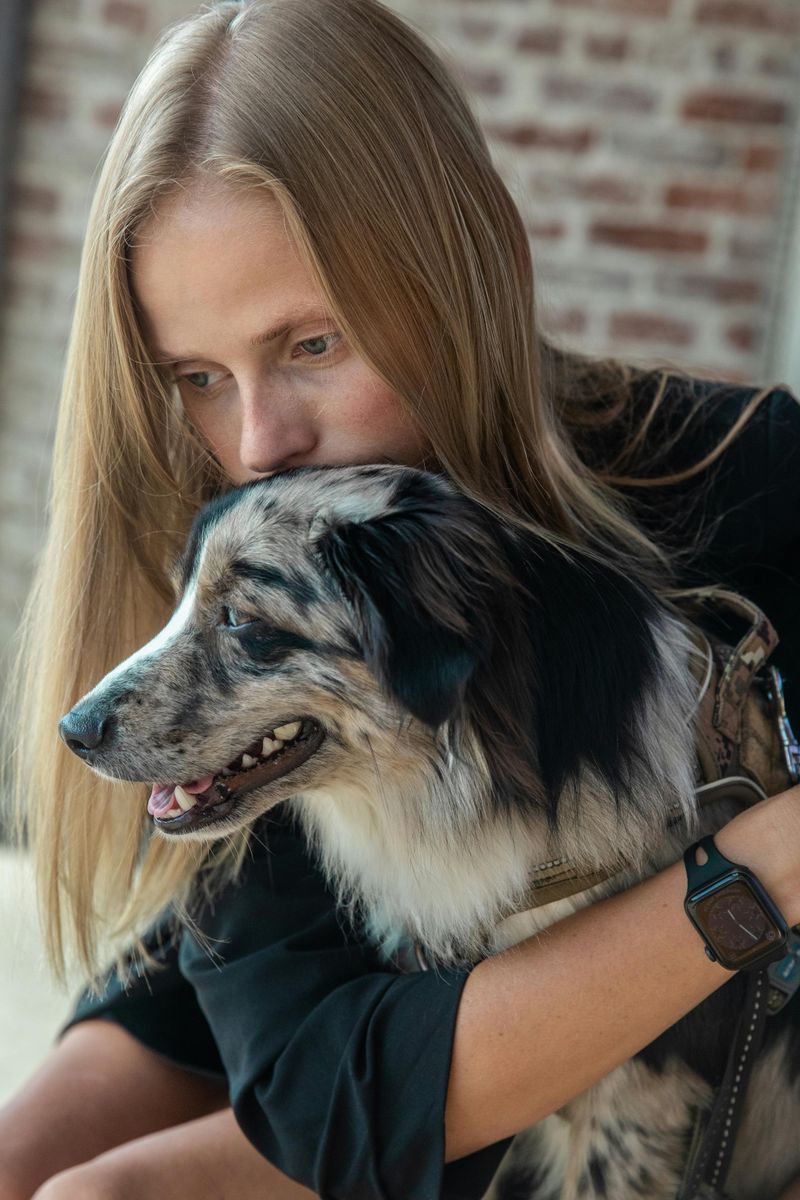Some comments sound harmless until they land on someone who’s tired of defending their identity. Atheist dog owners often face remarks that mix religion, morality, and pet care in ways that feel dismissive. These quips can undercut their love for their dogs or question their values. Read on to recognize these comments, understand why they hurt, and learn better ways to speak with compassion.
“Who blesses your dog?”
This question implies spiritual oversight is necessary for genuine care, subtly framing atheism as lacking. It can make an owner feel their affection is incomplete without religious ritual. While many cherish blessings, others express love through science-based care, routine, and presence. Suggesting a dog needs divine sanction discounts practical devotion. It’s kinder to ask how they celebrate milestones or support their dog’s wellbeing. Focus on shared values like health, safety, and joy. Avoid presuming spiritual frameworks or superiority. Respect comes from acknowledging different, equally valid ways to express love.
“Without God, how do you love animals?”
This comment questions a person’s moral capacity, implying empathy requires religion. Love for animals is often rooted in empathy, shared experiences, and responsibility. Asking this can feel like an accusation rather than curiosity. It dismisses ethics grounded in humanism, science, or personal philosophy. Atheist dog owners show love via enrichment, training, nutrition, and medical care. Better questions explore their bond or routine. Instead of “how do you,” try “what do you cherish about your dog?” Center humanity and compassion. Everyone benefits when we assume care doesn’t need a theological stamp.
“You must think dogs are just biology.”
This statement reduces secular perspectives to cold materialism, ignoring profound meaning people find in relationships. Many atheists appreciate dogs’ inner lives while accepting scientific explanations. Suggesting they view pets as “just biology” dismisses joy, attachment, and grief. Science and sentiment can coexist. It’s more respectful to ask about the dog’s personality or quirks. Recognize that wonder doesn’t require mysticism. Bonds grow through consistency, play, and care. Avoid caricatures that equate skepticism with emotional emptiness. People can honor evidence and still feel deeply connected to their animals.
“I’ll pray your dog finds purpose.”
While intended kindly, this can sound like your dog—and by extension your life—lacks meaning without spiritual framing. Dogs thrive through routine, play, and secure attachment. Purpose can be enrichment, training, or simply companionship. Framing purpose as exclusively divine invalidates secular interpretations of meaning. Consider offering tangible support: share a hiking spot, a favorite enrichment toy, or a reliable vet. Respect that different worldviews define purpose differently. Genuine kindness meets people where they are. Words matter; choose ones that uplift without imposing belief.
“How will you teach right and wrong to your dog?”
This comment assumes morality and training flow from religion alone. Dog training is evidence-based: reinforcement, consistency, and clear cues shape behavior. Atheist owners often follow humane, science-backed methods. Questioning their moral compass can feel insulting and irrelevant to canine learning. Instead, ask what training methods they prefer or what commands their dog knows. Focus on behavior rather than belief. Shared goals—safety, calm greetings, reliable recall—bridge differences. Respect expertise over assumptions. Ethical pet care thrives on compassion, patience, and practical knowledge.
“No afterlife—so why get attached?”
This remark trivializes deep bonds by tethering attachment to beliefs about the afterlife. People love dogs for the present: shared routines, comfort, and joyful moments. Attachment doesn’t require eternity to be meaningful. Suggesting otherwise can feel cruel, especially to someone who’s grieving or anxious about loss. A better approach is empathy—acknowledge the bond and offer support. Celebrate the time they have now. Love’s value isn’t measured by duration alone. It’s measured by care, presence, and mutual trust.
“Your dog needs spiritual protection.”
Implying a dog requires spiritual shields can sound like fearmongering or superiority. Many owners rely on practical safeguards: microchips, training, vaccines, and secure environments. Atheist dog owners may feel judged when care is equated with rituals they don’t practice. Offer helpful, worldly protections instead—recommend a sturdy harness, recall games, or a reputable trainer. Safety is universal, not theological. Frame advice around evidence and shared goals. Choosing respectful language maintains connection while promoting real-world safety.
“Dogs are gifts from God—agree?”
This puts pressure on agreement, making dissent awkward or alienating. While many find that belief comforting, others attribute dogs’ presence to evolution, breeding, and human choices. Forcing consensus can shut down conversation. Instead, share your joy without requiring validation. Try “I feel blessed to have my dog; what makes yours special?” That invites connection without imposing theology. Respect for differing origins doesn’t diminish shared affection. Center the dog’s unique charm and the care they receive.
“You’ll believe when your dog is sick.”
This claim predicts a crisis conversion and exploits vulnerability. It can feel manipulative, dismissing current values and coping strategies. Many atheists face hardship with support networks, medicine, and mindfulness. When a dog is ill, they need empathy, not pressure. Offer practical help: a ride to the vet, medication reminders, or a calm presence. Compassion is more persuasive than prophecy. Validate their worry and hope. Care speaks louder than conversion attempts.









